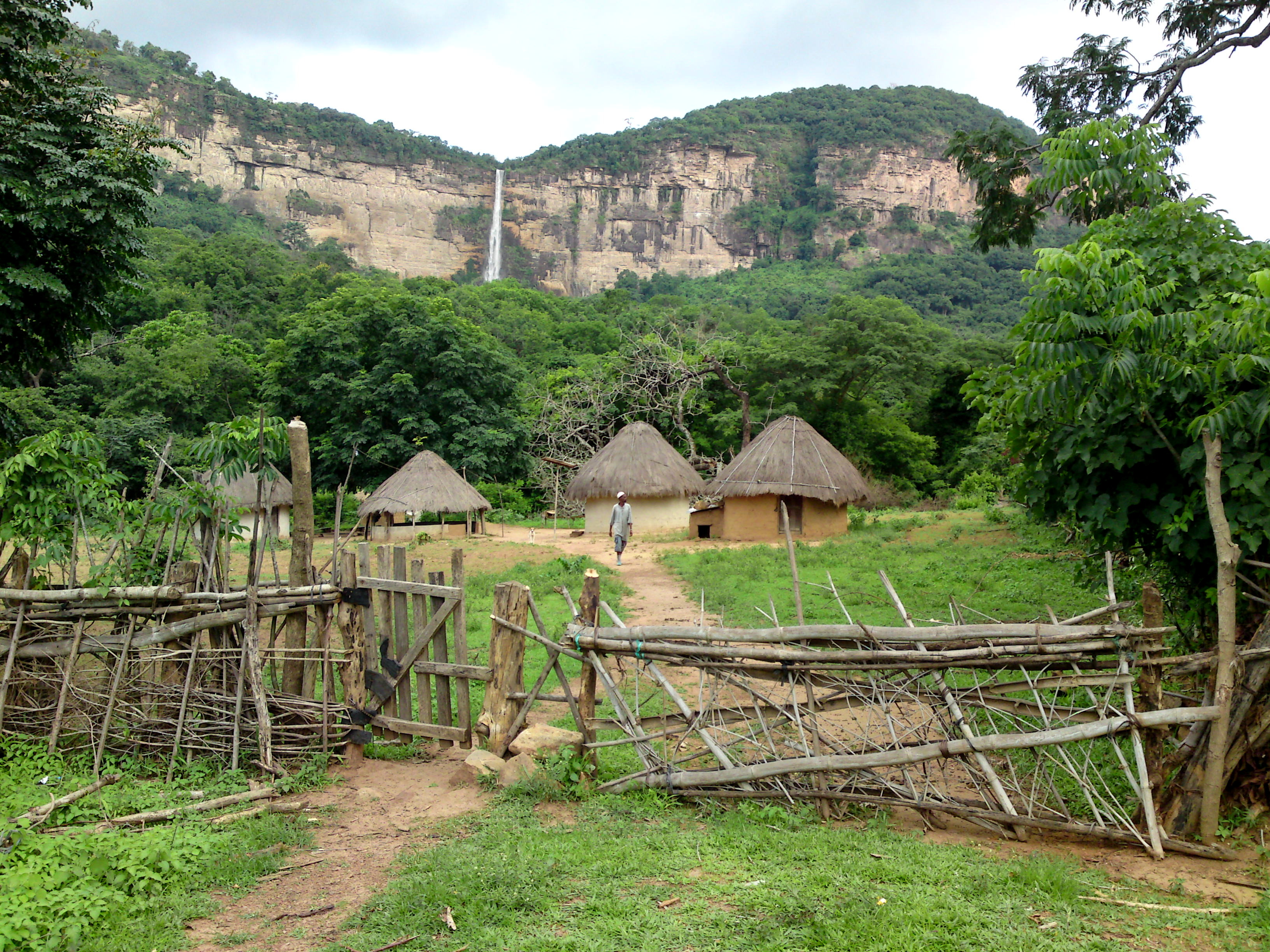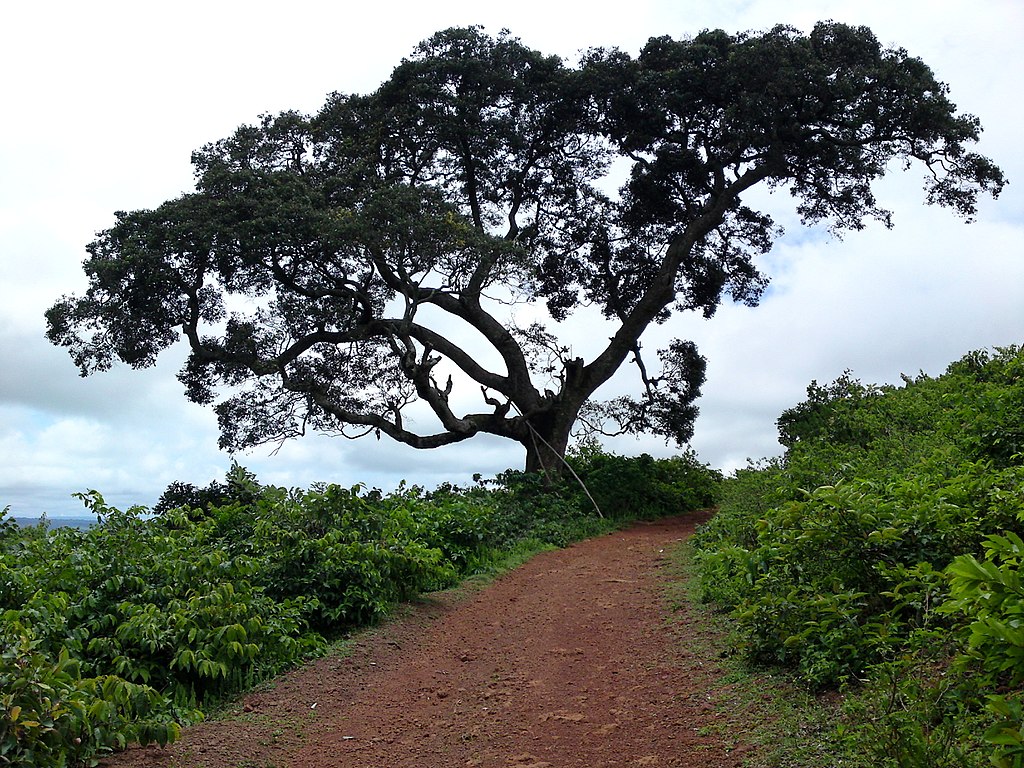Ibrahima Sow
Unlike the others discussed in this section, Ibrahima Sow still lives in Guinea today. He was born in the town of Thianguel Bori in the district of Lelouma, 50 kilometers from Labé, the colonial capital and largest city of the Futa Jallon highlands. As a young man, he was living in the city of Nzérékoré, today Guinea’s second largest city. Nzérékoré is the largest city of southeastern Guinea (the Forest Region) and is very close to Guinea’s borders with Côte d’Ivoire and Liberia. When he decided to flee Guinea, he went to wherever was closest, in this case, Côte d’Ivoire. Unlike most Fulbe who went to Senegal, Gambia, Guinea-Bissau, or Sierra Leone, he ended up in Côte d’Ivoire, where he lived for almost 30 years.
Many of his family fled as well; some fled to Senegal, some to Liberia, basically whichever country was closest at the time they decided to leave. He was treated well in Côte d’Ivoire, married, and had children there. He returned to Guinea, first to the Forest Region in the southeast, and then to his home region of Labé in 1984. but then went back to Côte d’Ivoire soon after. After nearly 30 years in Côte d’Ivoire, he left during the Ivorian Civil War that broke out in 2002. When I met him in 2017, he was based in Guinea but working seasonally in Guinea-Bissau farming, his third consecutive year doing so.
Interview
The government of Sékou Touré, he brought new laws and norms and he removed yearly taxes where people would have to pay money. They [the colonial government] counted your goats, sheep, and cattle, and you would pay per animal. Their veternarians would come to could your cattle and goats and you would pay for all of them to the canton [local administrative unit] government. He [Touré] changed directions but you had to give a proportion of your cattle as a gift to the government. He also brought fundamental laws to the country saying that each person over fourteen or fifteen years of age had to pay 50 kilos [110 pounds] each o tax. It could be cash, or they would take rice or corn or fonio [a West African grain] if you could not pay. Sékou Touré’s government made life difficult for the people. He did not want people to leave the country, go to the border to leave, and flee to Senegal. At this time, Senghor was president in Senegal and Sékou Touré was sitting [in the government] in Guinea. During this period, anyone who could would go to Senegal or Sierra Leone or Liberia, and they wlould welcome there. The people from Guinea may be the first refugees in West Africa. They all ran for Senegal, Gambia, or Guinea-Bissau. The Maninka people went from Kankan, Koussi, and Kerouane to Mali and Côte d’Ivoire. The Gersee and Toma and Kissi went to Sierra Leone and Liberia [Note: all of these groups ran to whatever neighboring areas were closest]. Only the elderly and children stayed in Guinea; everyone else left. That was the history of Sékou Touré’s government. He died in 1984 and General Lassana Conté took power, and people returned to the homeland. At that time, I was in Nzérékoré [in southeastern Guinea]. I had left in 1968 for Côte d’Ivoire but I came back later. By 1984 I was in Nzérékoré but in 1984 I finally returned back to the region of Labé. Then all barriers at the border were removed. Each barrier one after the other. Everywhere across the country was barrier after barrier after barrier. They removed the barriers and removed the things that had tired so many. Lansana Conté came to power and everyone came back. They were all happy. During the 24 years of Lassana Conte as president, the country developed and prospered. The people were very happy. There were no problems. Guinea had suffered during Sékou Touré’s time, he had made the country worse. Anyone who knows the 26 years of Sékou Touré’s power will not say it was good; only those who were in power ate until they were full and happy, but the population was tired!
Was it Sékou Touré who made you flee to Côte d’Ivoire? What brought problems between Sékou Touré and Fulbe people?
What brought problems during Sékou Touré’s time was that he only studied for six years; I say now if you have a law degree, and he didn’t have a high school certificiate, he was scared because a person had taken the country without studying, shouldn’t be scared of the learned? It was this, not that people were Fulbe. It was Fulbe, Susu and Maninka who had studied. That is what made Camara Laye run, that is what made Diallo Telli run; also Sekou philo Camara , the great philosopher, all of them ran away from the country. Some of them were taken and sent to jail and some were executed. If the chicken was killed wouldn’t the gelongal [ a black crowned crane very important to the Fulbe of the region] flee? All of the educated were taken we know the story, Barry Diawadou or Barry III, the former minister of finance, Doctor Diallo who operated on the brain, they were all taken and executed in Camp Boiro, and Sékou Touré who had six years of education knew that the population was too scared to say anything. He had a secret agency with informants and you were scared to say Sékou Touré’s name today and tomorrow they would take you away. Would you run away? Now he died, God killed him, and he was replaced by Conté. It’s not about ethnicity, a good government [of any ethinicity] will make the whole country good. If the government is bad, the whole country is bad. Conté came, he was an experienced president and there were no problems. He told people to return and many of them returned to make the country better.
You said you went to Côte d’Ivoire. Did your relatives also run away; where did they run to?
Many, many! Some went to Senegal, some to Sierra Leone, wherever was closest they ran to. You know when the forest burns, all the animals run away wherever is closest.
Why did you choose Ivory Coast?
I found myself in Gersé country, in Nzérékoré, and from there [Côte d’Ivoire] was closest.
How long were you in Côte d’Ivoire?
I was there almost thirty years.

